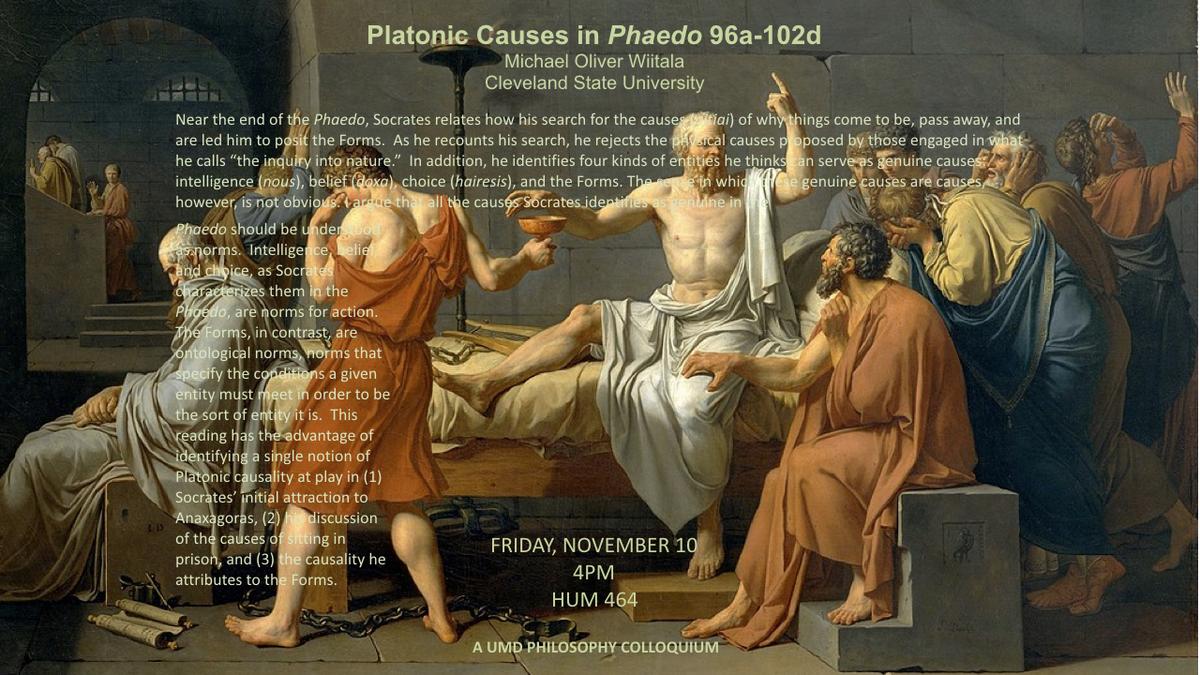Near the end of the Phaedo, Socrates relates how his search for the causes (aitiai) of why things come to be, pass away, and are led him to posit the Forms. As he recounts his search, he rejects the physical causes proposed by those engaged in what he calls “the inquiry into nature.” In addition, he identifies four kinds of entities he thinks can serve as genuine causes: intelligence (nous), belief (doxa), choice (hairesis), and the Forms. The sense in which these genuine causes are causes, however, is not obvious. I argue that all the causes Socrates identifies as genuine in the Phaedo should be understood as norms. Intelligence, belief, and choice, as Socrates characterizes them in the Phaedo, are norms for action. The Forms, in contrast, are ontological norms, norms that specify the conditions a given entity must meet in order to be the sort of entity it is. This reading has the advantage of identifying a single notion of Platonic causality at play in (1) Socrates’ initial attraction to Anaxagoras, (2) his discussion of the causes of sitting in prison, and (3) the causality he attributes to the Forms.
This talk will count towards the UMD Philosophy Colloquium.
